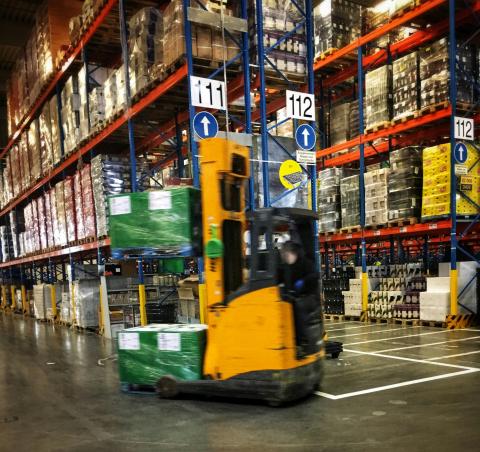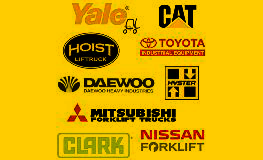
Advantages of Renting a Forklift
In the world of material handling and industrial operations, forklifts stand as indispensable tools, enabling the seamless movement of goods and materials across various sectors. When it comes to acquiring a forklift for your business needs, the decision between renting and buying is crucial. While purchasing a forklift may seem like the obvious choice for some, renting presents a myriad of advantages that warrant careful consideration. In this article, we delve into the advantages of renting a forklift versus buying, exploring the flexibility, cost-effectiveness, maintenance, and scalability that renting offers.
1. Flexibility and Adaptability
One of the primary advantages of renting a forklift lies in the flexibility it offers to businesses. Operational needs often fluctuate in industries such as construction, warehousing, and manufacturing. Renting a forklift provides the agility to adjust to these changing demands without the long-term commitment and financial burden associated with purchasing equipment outright. Whether it's a short-term project, seasonal peak, or unexpected increase in workload, renting allows businesses to scale their forklift fleet up or down as needed, ensuring optimal resource utilization.
2. Cost-Effectiveness
Financial considerations play a significant role in any business decision. Renting a forklift eliminates the hefty upfront investment required for purchasing equipment, making it a more cost-effective option, especially for small and medium-sized enterprises (SMEs) or startups with limited capital. By opting for rental services, businesses can allocate their resources more efficiently, directing funds towards core operations, expansion initiatives, or strategic investments, rather than tying them up in depreciating assets.
Moreover, renting eliminates additional expenses associated with ownership, such as maintenance, repairs, insurance, and storage costs. Rental agreements typically include comprehensive maintenance packages, ensuring that the forklifts remain in optimal working condition throughout the rental period, thus minimizing downtime and maximizing productivity. In essence, renting allows businesses to access high-quality equipment without bearing the full financial burden of ownership, resulting in significant cost savings over time.
3. Maintenance and Support
Forklift maintenance is a critical aspect of ensuring operational efficiency and safety. However, maintaining a forklift fleet can be a time-consuming and resource-intensive endeavor. By choosing to rent, businesses offload the responsibility of maintenance and repairs to the rental provider, who possesses the expertise, resources, and infrastructure to uphold the highest standards of equipment upkeep.
Rental agreements often include regular maintenance schedules, inspections, and prompt repair services, minimizing the risk of unexpected breakdowns and ensuring compliance with safety regulations. This proactive approach to maintenance not only enhances the lifespan of the forklifts but also enhances operational reliability, reducing disruptions and downtime in the workflow. Additionally, rental providers may offer technical support and training programs to equip operators with the necessary skills and knowledge to operate the equipment safely and efficiently.
4. Access to Latest Technology
The field of material handling equipment is constantly evolving, with manufacturers introducing new innovations and technological advancements to enhance performance, efficiency, and safety. For businesses that opt to buy forklifts, staying abreast of these developments can be challenging, as it entails frequent upgrades or replacements to maintain a competitive edge.
Renting a forklift provides businesses with access to a diverse range of equipment models and configurations, including the latest technological features and enhancements. Rental providers regularly update their fleets to incorporate newer models, ensuring that clients have access to cutting-edge technology without the hassle and expense of purchasing new equipment outright. This enables businesses to leverage state-of-the-art forklifts to optimize their operations, improve productivity, and stay ahead of the curve in an increasingly competitive marketplace.
5. Mitigation of Depreciation and Resale Concerns
Forklifts, like any other industrial equipment, depreciate over time due to usage, wear and tear, and technological obsolescence. When businesses purchase forklifts, they not only incur the initial depreciation but also face the challenge of reselling the equipment at a reasonable value once it reaches the end of its useful life or is no longer needed.
Renting mitigates these concerns by shifting the ownership and resale burden to the rental provider. Businesses are not exposed to the risks associated with depreciation, fluctuations in market demand, or equipment obsolescence. Instead, they can simply return the rented forklifts at the end of the contract period or upgrade to newer models as per their evolving requirements, without worrying about the financial implications of asset disposal.
Conclusion
In conclusion, the advantages of renting a forklift versus buying are manifold, encompassing flexibility, cost-effectiveness, maintenance, access to technology, and mitigation of depreciation concerns. By opting to rent, businesses can adapt to changing operational needs, optimize resource allocation, minimize maintenance burdens, leverage the latest technological innovations, and mitigate financial risks associated with ownership. Ultimately, renting offers a pragmatic and efficient solution for businesses seeking to enhance their material handling capabilities while maximizing operational efficiency and cost savings.
- Inicie sesión para enviar comentarios
Copyright © 2024 Industrial Liquidators. All rights reserved

